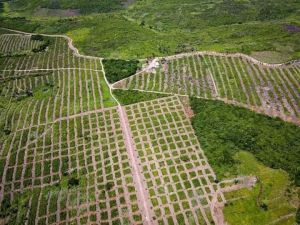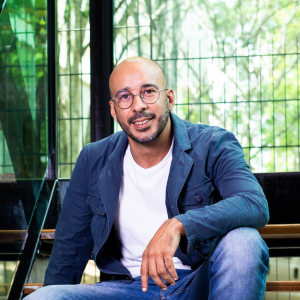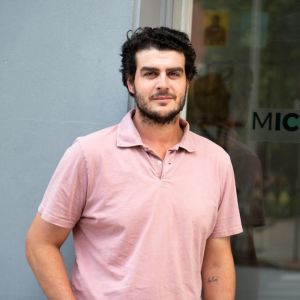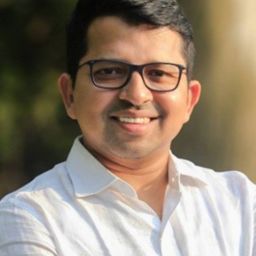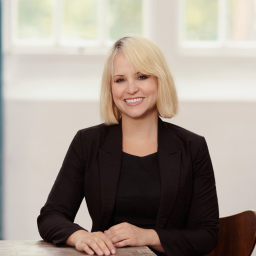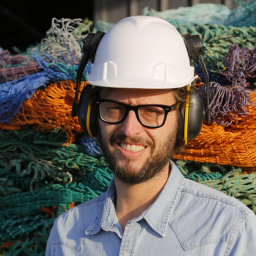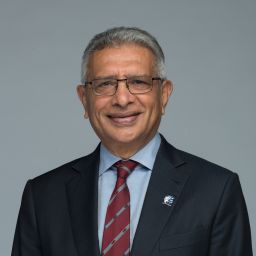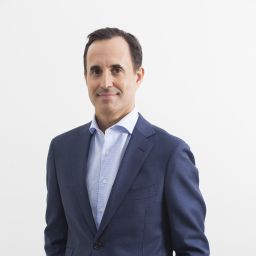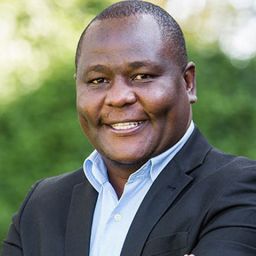Meaningful Business (MB:) Please tell us a bit about your background.
Divin Koueba (DK): I am a social entrepreneur and founder of mVutu – a technology platform providing end-to-end agricultural services to farmers. I am of Congolese nationality, and graduated as a Polytechnic engineer. I was an international consultant in green technologies, and was increasingly struck by the obvious consequences of climate change and ecological disruption in the Congo.

Divin Kouebatouka, CEO of Mvutu
MB: Please introduce your business and the problems you’re trying to solve.
DK: The raw material at the beginning of the agricultural cycle is the most important aspect that determines the quality and volume of production, thereby also influencing the farmer’s income and livelihood. There are serious gaps in the agri-input value chain due to mismatch of supply and demand, substandard locally produced products, duplication, adulteration and black marketing of key products. At Mvutu, our goal is to provide the right kind of high quality agricultural input at the right price and time.
Our technology platform provides end-to-end agricultural services to farmers, including distribution of high quality inputs, personalised advice and access to financial services.
We also provide a cold chain for the preservation of harvested foods using data science and demand-responsive technologies to meet specific demands. By doing this, Mvutu sources the highest quality organic produce from smallholder farmers in the Congo.
It is our mission that each Mvutu unit caters to 1,000 farmers in a catchment area of 4-6 km. Smallholder farmers in the Congo have access to our services at relatively low cost through our vertically integrated business model. So far, we have built a strong network of over 3,000 smallholder farmers and 700 dealers in 3 counties, and created over 100 jobs. On average, the smallholders we work with have seen their income increase by up to 25%.
Fields of farmers that Mvutu helps
MB: What is your biggest challenge right now and what support do you need?
DK: We are currently only supplying half of what the market is asking for. The challenge we face is logistical due to infrastructure issues. Farmers produce food and consumers are waiting to buy and eat the food in a timely manner, but the process of getting the resources acquired, stored and transported to their final destination is a problem.
Going forward, our desire is to improve and maximise our services by getting our own fleet of crawlers which would facilitate transportation of products from farmers to our customers and improve downtime.
Funding is definitely a requirement for us. We’re looking for $150,000 to accelerate our growth. We will use part of the fund to finance the expansion of our farm and hire contractors to meet our current demand. The investment will also go a long way towards finalising the development of our mobile app and USSD mobile technology for informal fruit and vegetable vendors and smallholder farmers in the Congo. We will launch our shop selling fresh produce in the city centre of Brazzaville, a first for the Congo, in order to promote local products and help our farmers increase their income.
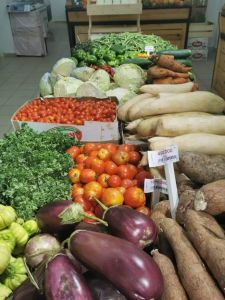
Harvest that Mvutu tries to preserve via providing cold chain services to farmers
MB: What is your ambition for the future of your business?
DK: The Congo is still a virgin market in terms of agriculture, however the soil is so fertile. People export raw materials and buy back finished products, so there is an opportunity to improve production, the quality of our products and to export finished products. Currently we are working on a platform for informal street vendors, as most of them buy products from the public market but find it difficult to access them. There are over a million informal vendors in major cities in the Congo, and 70% of people buy products from them. So this is a very big market for us to tap into.
MB: What is your advice to other leaders who want to combine profit and purpose?
DK: If you want to build a company that really motivates its employees, it has to have a purpose. When such a goal exists, it provides employees with clear direction, helps them set priorities, and motivates them to go the extra mile – which, the argument goes, should ultimately be good for profit. However, to maintain both a sense of purpose and a solid level of profitability over time, companies must pay attention to fundamental organising principles.
________
Quickfire Questions
MB – Tell us a mistake you’ve learned from:
DK: When we launched Mvutu, we had difficulty recruiting the right team. At that time, we lacked experience in hiring and also could not afford to hire the best of the best and we lacked the funds to pay the required salaries. It also took us time to ensure that everyone we hired understood the company in terms of its vision and dedicated mission.
MB – How do you spend your time away from work?
DK: I often spend time reading and being inspired by business models that have preceded us in the sector. My motto is to learn from their mistakes and improve daily.
MB – What is the one book everyone should read?
DK: The book everyone should read is: ‘Journey to the Top‘ , by Jamie Crosbie.
MB – What’s one thing you want to achieve in 2022?
DK: Funding and growth for Mvutu
________
Discover the other leaders recognised on the 2021 MB100, for their work combining profit and purpose to help achieve the United Nations Global Goals, here.


